May 4 stands as one of history’s most eventful days, witnessing the rise and fall of empires, groundbreaking discoveries, and moments that shaped our modern world across centuries of human achievement.
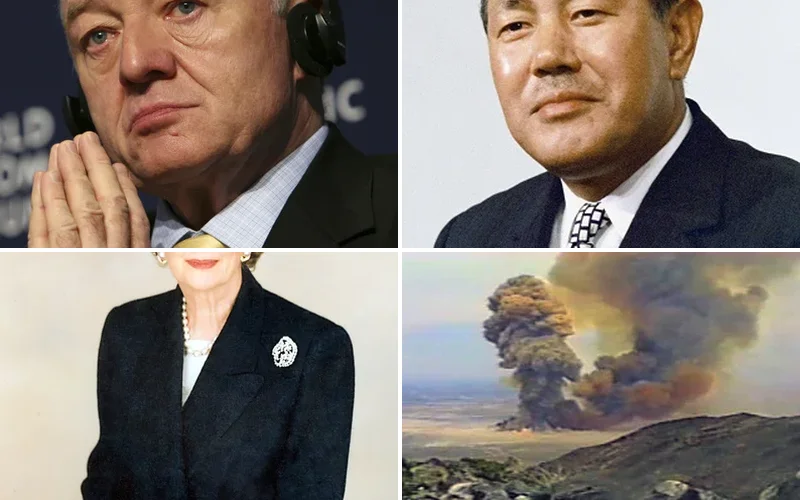
Politics and Government Events on May 4
1919 – May Fourth Movement Erupts in Beijing

Student demonstrators flooded Tiananmen Square protesting the Treaty of Versailles. The treaty’s transfer of Chinese territory to Japan sparked nationwide outrage among intellectuals and students.
This historic protest launched China’s modern nationalist movement and challenged traditional authority structures. The demonstrations fundamentally altered Chinese political consciousness and inspired future revolutionary movements.
1945 – German Forces Surrender at Lüneburg Heath
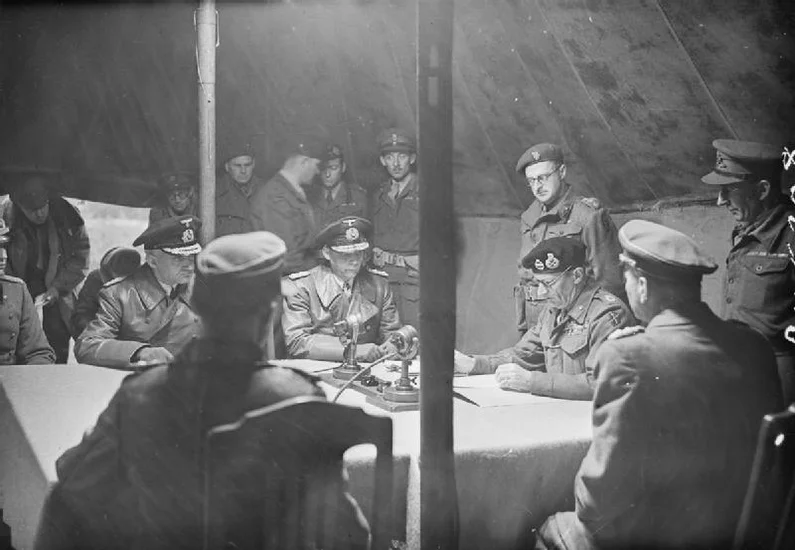
German military commanders signed a comprehensive surrender agreement covering all Wehrmacht units in the Netherlands, Denmark, and northwest Germany. The surrender took effect the following day, marking a crucial step toward ending World War II in Europe.
British Field Marshal Bernard Montgomery accepted the German capitulation on behalf of the Allied forces. This regional surrender preceded the complete German capitulation by several days.
1980 – Margaret Thatcher Becomes Britain’s First Female Prime Minister

Margaret Thatcher entered 10 Downing Street as the United Kingdom’s first woman to hold the office of Prime Minister. Her Conservative Party had decisively defeated James Callaghan’s Labour government in the general election.
Thatcher’s ascension marked the beginning of a transformative era in British politics. Her economic policies and leadership style would reshape the nation’s political landscape for decades.
1994 – Israeli-Palestinian Peace Accord Signed
Israeli Prime Minister Yitzhak Rabin and PLO leader Yasser Arafat signed a historic peace agreement in Washington. The accord granted Palestinian self-rule in the Gaza Strip and the West Bank city of Jericho.
President Bill Clinton witnessed the ceremony that represented the most significant breakthrough in Middle East peace negotiations. The agreement established a framework for expanding Palestinian autonomy in occupied territories.
1990 – Latvia Declares Independence from Soviet Union
The Latvian parliament voted to restore the country’s independence after five decades of Soviet occupation. The declaration followed similar moves by other Baltic republics seeking to break free from Moscow’s control.
Latvia’s independence movement gained momentum as the Soviet Union weakened under Mikhail Gorbachev’s reforms. The Baltic nation’s courage inspired other Soviet republics to pursue their own independence aspirations.
2000 – Ken Livingstone Becomes London’s First Elected Mayor

Ken Livingstone won the inaugural mayoral election for Greater London, creating a new political office. The former Labour MP ran as an independent candidate after being expelled from the Labour Party.
Livingstone’s victory established London’s directly elected mayoralty as a significant political position. His win demonstrated the appeal of his populist message and London-focused political agenda.
Military and Naval History on May 4
1910 – Royal Canadian Navy Established
The Canadian government officially created the Royal Canadian Navy, establishing the nation’s independent naval force. This momentous decision marked Canada’s growing autonomy within the British Empire and its commitment to maritime defense.
The new navy began with two aging cruisers but represented Canada’s determination to control its own waters. The service would eventually grow into a formidable force during both world wars.
1942 – Battle of the Coral Sea Begins
Aircraft from USS Yorktown launched attacks against Japanese naval forces at Tulagi Island in the Solomon Islands. The strike marked the opening phase of the first major naval battle fought entirely by aircraft carriers.
Japanese forces had occupied Tulagi the previous day as part of their expansion toward Australia. This battle would prove to be a crucial turning point in the Pacific Theater of World War II.
1982 – HMS Sheffield Sunk During Falklands War
An Argentine Exocet missile struck the British Type 42 destroyer HMS Sheffield, killing twenty sailors. The attack demonstrated the deadly effectiveness of modern anti-ship missiles in naval warfare.
The loss of HMS Sheffield shocked the British public and military leadership. The incident highlighted the vulnerability of modern warships to sophisticated missile attacks.
1978 – South African Forces Attack SWAPO Base
The South African Defence Force launched a major assault on a SWAPO military base at Cassinga in southern Angola. The operation killed approximately 600 people and marked an escalation in the border conflict.
The attack drew international condemnation and highlighted the regional dimensions of the apartheid struggle. SWAPO forces had been using Angola as a base for operations against South African rule in Namibia.
Science and Discovery Milestones on May 4
1904 – United States Begins Panama Canal Construction

American engineers and workers commenced the monumental task of building the Panama Canal. The project represented the largest engineering undertaking in human history at that time.
The canal construction required overcoming massive technical challenges including disease, unstable terrain, and unprecedented excavation requirements. This ambitious project would fundamentally transform global maritime commerce and demonstrate American engineering capabilities.
1961 – Balloon Altitude Record Established
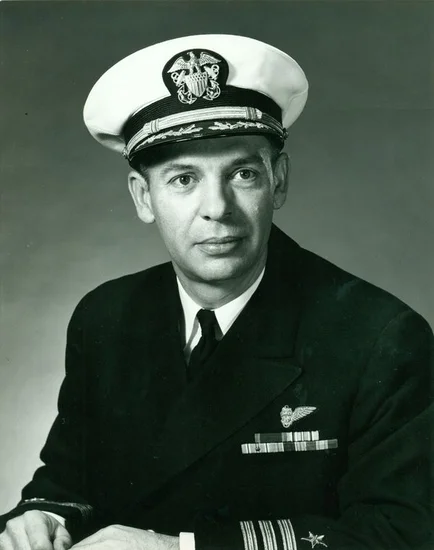
Malcolm Ross and Victor Prather ascended to 113,740 feet in the Strato-Lab V open gondola balloon. Their achievement established a new world record for manned balloon flight that pushed the boundaries of human exploration.
The high-altitude flight provided valuable scientific data for space exploration programs. Their pioneering work contributed significantly to understanding the challenges of operating in the upper atmosphere.
1989 – Space Shuttle Atlantis Launches Venus Mission
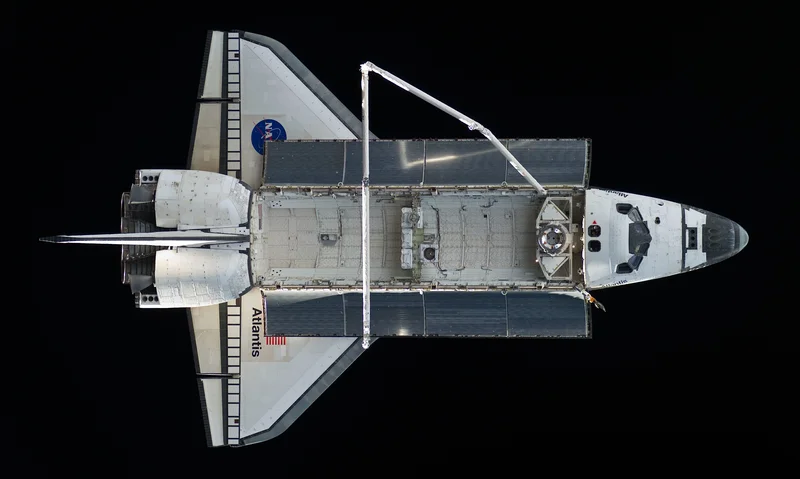
Space Shuttle Atlantis lifted off on mission STS-30 carrying the Magellan space probe. The probe was destined for Venus to conduct detailed radar mapping of the planet’s surface.
Magellan would become one of NASA’s most successful planetary missions, revealing Venus’s geological features in unprecedented detail. The mission demonstrated the space shuttle’s capability to deploy sophisticated interplanetary spacecraft.
1988 – PEPCON Disaster Rocks Nevada
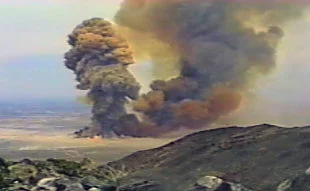
Tons of ammonium perchlorate exploded during a fire at the PEPCON plant in Henderson, Nevada. The chemical compound, used as Space Shuttle fuel, created a massive explosion that damaged buildings for miles around.
The disaster highlighted the dangers of storing large quantities of rocket propellants near populated areas. NASA and other space agencies subsequently revised their safety protocols for handling hazardous materials.
Cultural and Arts Events on May 4
1953 – Ernest Hemingway Wins Pulitzer Prize

Ernest Hemingway received the Pulitzer Prize for Fiction for his masterpiece “The Old Man and the Sea.” The award recognized his powerful narrative about an aging fisherman’s epic struggle with a giant marlin.
The novel’s success restored Hemingway’s literary reputation after several years of declining critical reception. His distinctive writing style and themes of courage and perseverance resonated with readers worldwide.
1959 – First Grammy Awards Ceremony Held
The music industry celebrated its inaugural Grammy Awards ceremony, honoring outstanding achievements in recorded music. The event established what would become the most prestigious awards in the recording industry.
The ceremony recognized excellence across multiple musical genres and categories. This first Grammy Awards laid the foundation for an annual tradition that continues to celebrate musical artistry.
1927 – Academy of Motion Picture Arts and Sciences Incorporated
Hollywood’s most influential organization officially incorporated, bringing together leading figures from the film industry. The Academy aimed to advance the arts and sciences of motion pictures while mediating labor disputes.
The organization would soon establish the Academy Awards, creating cinema’s most coveted honor. The Academy’s formation marked Hollywood’s maturation as both an industry and an art form.
2019 – Inaugural W Series Racing Championship Begins
The first-ever all-female motorsport series launched at Hockenheimring in Germany. Jamie Chadwick won the inaugural race and would go on to claim the season championship.
The W Series represented a groundbreaking initiative to promote women’s participation in motorsport. The series provided a platform for female drivers to compete at the highest levels of racing.
Religious and Social Events on May 4
1961 – Freedom Riders Begin Journey Through the South

Civil rights activists launched the Freedom Riders campaign, boarding buses to challenge segregation in interstate travel. The integrated group of activists planned to travel through the Deep South testing federal desegregation orders.
The Freedom Riders faced violent opposition from segregationists but persisted in their mission. Their courage and determination helped galvanize the broader civil rights movement and exposed the brutality of segregation.
1970 – Kent State Shootings Shock the Nation
Ohio National Guard troops opened fire on unarmed student protesters at Kent State University, killing four students and wounding nine others. The students had been protesting the U.S. military expansion into Cambodia.
The shootings sparked nationwide campus protests and deepened opposition to the Vietnam War. The tragic event became a symbol of the generational divide over American foreign policy.
1972 – Don’t Make A Wave Committee Becomes Greenpeace
The environmental organization officially changed its name from the Don’t Make A Wave Committee to Greenpeace Foundation. The Canadian-based group had been protesting nuclear testing and environmental destruction.
Greenpeace’s new name better reflected its mission of promoting peace and environmental protection. The organization would grow into one of the world’s most influential environmental advocacy groups.
Business and Economic Events on May 4
1926 – United Kingdom General Strike Begins
British workers launched a nationwide general strike affecting transportation, mining, and heavy industry. The strike represented the most significant labor action in British history, involving millions of workers.
The strike arose from disputes over coal miners’ wages and working conditions. The government mobilized volunteers and military personnel to maintain essential services during the nine-day work stoppage.
1973 – Sears Tower Reaches Record Height
Construction crews completed the 108-story Sears Tower in Chicago, making it the world’s tallest building at 1,451 feet. The skyscraper represented a triumph of engineering and architectural ambition.
The tower’s completion marked Chicago’s return to prominence in high-rise construction. Its innovative design and record-breaking height established new standards for skyscraper construction worldwide.
1998 – Unabomber Receives Life Sentences
Federal Judge sentenced Theodore Kaczynski to four life sentences plus 30 years for his nationwide bombing campaign. Kaczynski accepted a plea agreement that spared him from the death penalty.
The Unabomber case had terrorized the nation for nearly two decades. Kaczynski’s manifesto against technology and industrialization revealed the ideological motivations behind his deadly attacks.
Transportation and Infrastructure on May 4
1912 – Italy Occupies Ottoman Island of Rhodes
Italian forces completed their occupation of Rhodes, seizing the strategically important island from the Ottoman Empire. The occupation strengthened Italy’s position in the eastern Mediterranean and demonstrated its imperial ambitions.
Rhodes provided Italy with a crucial naval base for projecting power in the region. The island’s capture reflected the declining strength of the Ottoman Empire and rising Italian nationalism.
1946 – Alcatraz Prison Riot Suppressed

U.S. Marines from Treasure Island Naval Base ended a two-day riot at Alcatraz Federal Penitentiary. The violent uprising resulted in five deaths and exposed security vulnerabilities at America’s most famous prison.
The riot demonstrated the extreme tensions within the maximum-security facility. Prison officials subsequently implemented stricter security measures to prevent future disturbances.
2007 – EF5 Tornado Devastates Greensburg, Kansas
A massive 1.7-mile-wide tornado virtually destroyed the town of Greensburg, Kansas. The tornado was the first ever rated EF5 on the newly implemented Enhanced Fujita Scale.
The devastating storm killed eleven people and destroyed 95% of the town’s buildings. Greensburg’s residents demonstrated remarkable resilience by rebuilding their community as an environmentally sustainable model town.
Sports and Recreation on May 4
1949 – Torino Football Team Perishes in Plane Crash
The entire Torino football team, except for two players who missed the trip, died in a plane crash near Turin. The tragedy eliminated Italy’s most successful football club and devastated the nation’s sporting community.
The crash occurred as the team returned from a friendly match in Portugal. Torino had dominated Italian football during the 1940s, winning five consecutive championships.
1932 – Al Capone Transferred to Federal Prison
Mobster Al Capone was transferred from Cook County Jail to the federal penitentiary in Atlanta. The U.S. Supreme Court had denied his appeal for his tax evasion conviction, sealing his fate.
Capone’s imprisonment marked the end of his criminal empire in Chicago. His conviction demonstrated that even the most powerful criminals could be brought to justice through persistent law enforcement.
2002 – Kano Airport Plane Crash Kills 103

A commercial aircraft crashed near Mallam Aminu Kano International Airport in Nigeria, killing 103 people and injuring 51 others. The disaster highlighted ongoing safety concerns in African aviation.
The crash prompted investigations into airport safety procedures and aircraft maintenance standards. The tragedy underscored the need for improved aviation safety regulations in developing nations.
Notable Births on May 4
1929 – Audrey Hepburn Born

Belgian-born actress Audrey Hepburn entered the world in Brussels, destined to become one of cinema’s most beloved stars. Her early life in war-torn Europe shaped her later humanitarian efforts and elegant screen presence.
Hepburn would captivate audiences with her performances in classics like “Roman Holiday” and “Breakfast at Tiffany’s.” Her grace, talent, and charitable work made her an enduring icon of Hollywood’s golden age.
1916 – Jane Jacobs Born
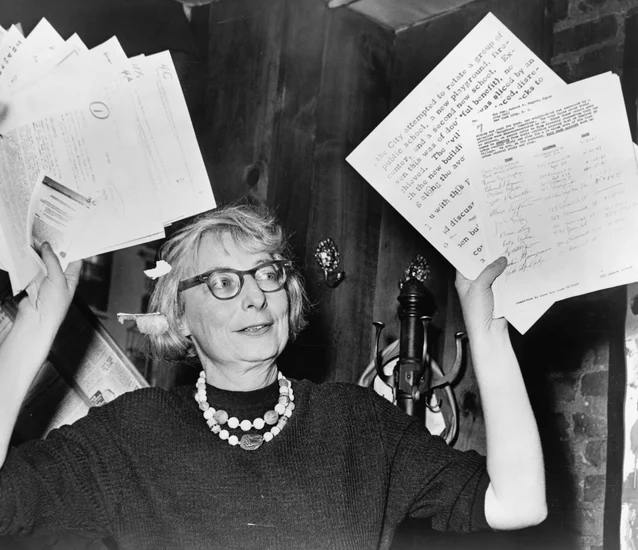
American-Canadian journalist and urban activist Jane Jacobs was born in Scranton, Pennsylvania. Her keen observations of city life would revolutionize urban planning theory and practice.
Jacobs challenged conventional wisdom about urban development through her influential writings. Her book “The Death and Life of Great American Cities” fundamentally changed how planners approached neighborhood design.
1958 – Keith Haring Born

American artist Keith Haring was born in Reading, Pennsylvania, beginning a life that would transform contemporary art. His distinctive visual style emerged from New York’s vibrant street art scene of the 1980s.
Haring’s bold, colorful artwork addressed social issues while maintaining universal appeal. His public art installations and advocacy for AIDS awareness left a lasting impact on both art and social consciousness.
1928 – Hosni Mubarak Born
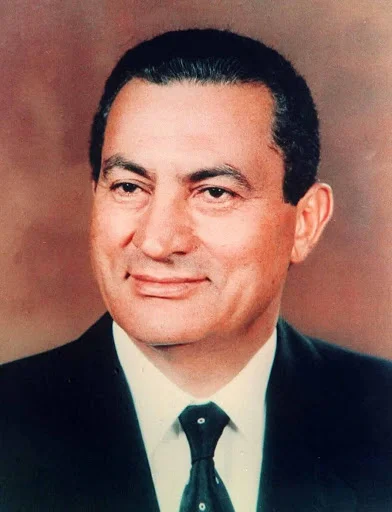
Egyptian air marshal Hosni Mubarak was born in Kafr El-Meselha, beginning a life that would span military service and political leadership. His career would eventually lead him to become Egypt’s fourth president.
Mubarak’s long tenure as president fundamentally shaped modern Egyptian politics. His rule lasted nearly three decades before ending during the Arab Spring uprisings of 2011.
1987 – Cesc Fàbregas Born

Spanish footballer Cesc Fàbregas was born in Arenys de Mar, Catalonia, destined to become one of football’s most skilled midfielders. His technical abilities and vision on the field would distinguish him throughout his career.
Fàbregas developed through Barcelona’s youth system before achieving success in England and returning to Spain. His international career included victories in the World Cup and European Championships.
1987 – Jorge Lorenzo Born

Spanish motorcycle racer Jorge Lorenzo was born in Palma, Majorca, beginning a journey toward motorsport excellence. His natural talent and dedication would propel him to the pinnacle of motorcycle racing.
Lorenzo dominated MotoGP competition, winning multiple world championships. His rivalry with other top riders created some of the most memorable moments in motorcycle racing history.
1989 – Rory McIlroy Born

Northern Irish golfer Rory McIlroy was born in Holywood, County Down, showing early promise in the sport. His powerful swing and competitive spirit would establish him as one of golf’s premier players.
McIlroy achieved remarkable success as a young professional, winning multiple major championships. His dynamic playing style and charismatic personality helped popularize golf among younger audiences.
1910 – Kakuei Tanaka Born

Japanese politician Kakuei Tanaka was born in Futada, Niigata Prefecture, beginning a life that would significantly impact Japanese politics. His rise from humble origins to the prime minister’s office embodied postwar Japan’s economic transformation.
Tanaka’s political career included major infrastructure projects and diplomatic initiatives. His leadership style and policies helped shape Japan’s rapid economic growth during the 1960s and 1970s.
1979 – Lance Bass Born

American singer Lance Bass was born in Laurel, Mississippi, destined to become part of one of pop music’s most successful groups. His vocal talents and stage presence would contribute to *NSYNC’s global popularity.
Bass helped define the boy band phenomenon of the late 1990s and early 2000s. His later ventures into space training and television production demonstrated his diverse interests and ambitions.
Notable Deaths on May 4
1980 – Josip Broz Tito Dies

Yugoslav leader Josip Broz Tito died in Ljubljana, ending an era of non-aligned leadership during the Cold War. His death marked the beginning of Yugoslavia’s gradual disintegration and the end of his unique brand of socialism.
Tito had successfully maintained Yugoslavia’s independence from both Soviet and Western influence. His passing left a power vacuum that would eventually contribute to the violent breakup of Yugoslavia in the 1990s.
1975 – Moe Howard Dies
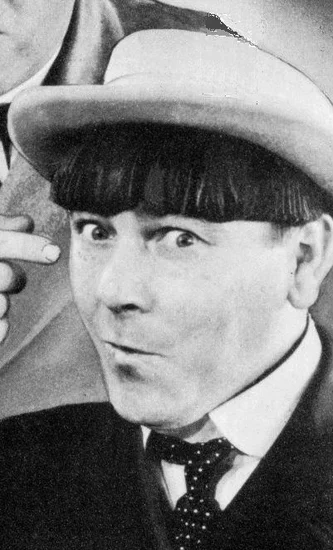
American comedian Moe Howard died in Los Angeles, California, ending the career of the Three Stooges’ most recognizable member. His distinctive bowl haircut and aggressive comedy style had entertained audiences for decades.
Howard’s physical comedy and leadership of the Three Stooges created a unique entertainment legacy. The group’s slapstick humor influenced generations of comedians and remained popular long after their peak years.
2012 – Adam Yauch Dies

Beastie Boys member Adam Yauch died in New York City from complications of cancer. His death marked the end of one of hip-hop’s most innovative and influential groups.
Yauch’s creative contributions helped transform the Beastie Boys from punk rockers to hip-hop pioneers. His advocacy for Tibetan independence and social causes demonstrated his commitment to activism beyond music.
1955 – George Enescu Dies

Romanian composer and conductor George Enescu died in Paris, concluding a brilliant musical career. His compositions blended Romanian folk traditions with classical European forms, creating a distinctive national musical voice.
Enescu’s influence on Romanian music extended beyond his compositions to his teaching and conducting. His mentorship of younger musicians helped establish Romania’s classical music tradition.
1938 – Carl von Ossietzky Dies

German journalist and Nobel Peace Prize laureate Carl von Ossietzky died in Berlin after years of persecution by the Nazi regime. His death symbolized the suppression of free speech and democratic values in Nazi Germany.
Ossietzky’s courageous journalism had exposed German rearmament violations of international treaties. His Nobel Prize recognition highlighted the international community’s concern about Nazi authoritarianism.
2020 – Don Shula Dies
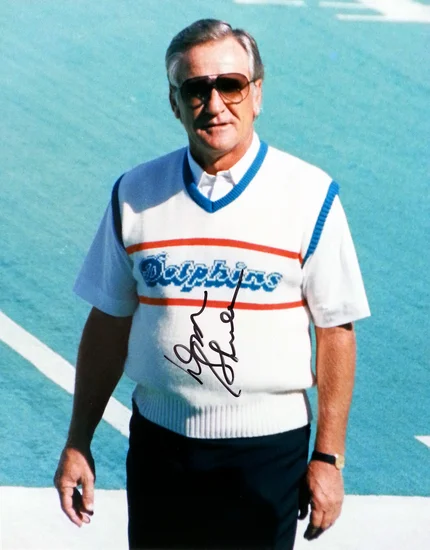
Legendary football coach Don Shula died in Indian Harbour Beach, Florida, ending the most successful coaching career in NFL history. His 347 career victories remained the all-time record for professional football coaches.
Shula’s leadership of the Miami Dolphins included the NFL’s only perfect season in 1972. His coaching philosophy and strategic innovations influenced football tactics for generations.
1953 – Alexandre Pharamond Dies
French rugby player Alexandre Pharamond died in Paris, concluding a pioneering career in early rugby competition. His athletic achievements helped establish rugby as a major sport in France.
Pharamond’s contributions to French rugby occurred during the sport’s formative years. His skill and dedication helped build the foundation for France’s later success in international rugby competition.
1990 – Emily Remler Dies

American jazz guitarist Emily Remler died in Sydney, Australia, ending a promising career cut short by personal struggles. Her innovative guitar work had earned recognition as one of jazz’s most talented young musicians.
Remler’s playing style combined traditional jazz elements with contemporary influences. Her recordings and performances demonstrated exceptional technical skill and musical creativity.
1964 – Karl Robert Pusta Dies
Estonian diplomat Karl Robert Pusta died in New York City, concluding a career dedicated to Estonian independence. His diplomatic work during Estonia’s interwar independence period helped establish the nation’s international recognition.
Pusta’s diplomatic efforts continued even after Soviet occupation ended Estonian independence. His commitment to Estonian sovereignty inspired the independence movement that would eventually succeed decades later.
Holidays and Observances on May 4
Star Wars Day International Observance
Fans worldwide celebrate Star Wars Day with the popular phrase “May the Fourth be with you.” The unofficial holiday honors the beloved science fiction franchise and its cultural impact.
The celebration includes movie marathons, costume contests, and special events at theme parks. Star Wars Day demonstrates the enduring popularity of the space opera saga across generations.
International Firefighters’ Day
Communities worldwide honor firefighters and emergency responders on this international day of recognition. The observance pays tribute to those who risk their lives protecting others from fires and disasters.
The day encourages public appreciation for firefighters’ courage and dedication. Many fire departments organize open houses and educational events to connect with their communities.
Greenery Day Japan
Japan celebrates Greenery Day as part of Golden Week, honoring nature and environmental consciousness. The holiday encourages appreciation for the natural world and environmental stewardship.
Originally celebrating Emperor Hirohito’s birthday, the day evolved into a broader celebration of nature. Japanese families often visit parks and gardens to enjoy spring’s natural beauty.
Youth Day China
China commemorates Youth Day in honor of the May Fourth Movement of 1919. The holiday celebrates young people’s role in social progress and national development.
The observance includes ceremonies, cultural events, and educational programs about Chinese history. Youth Day emphasizes the importance of young people in building China’s future.
Restoration of Independence Day Latvia
Latvia celebrates the restoration of independence from the Soviet Union with national ceremonies and cultural events. The holiday marks the country’s successful struggle for freedom and sovereignty.
The celebration includes flag ceremonies, concerts, and speeches honoring those who fought for independence. Latvians reflect on their nation’s journey from occupation to freedom.
Remembrance of the Dead Netherlands
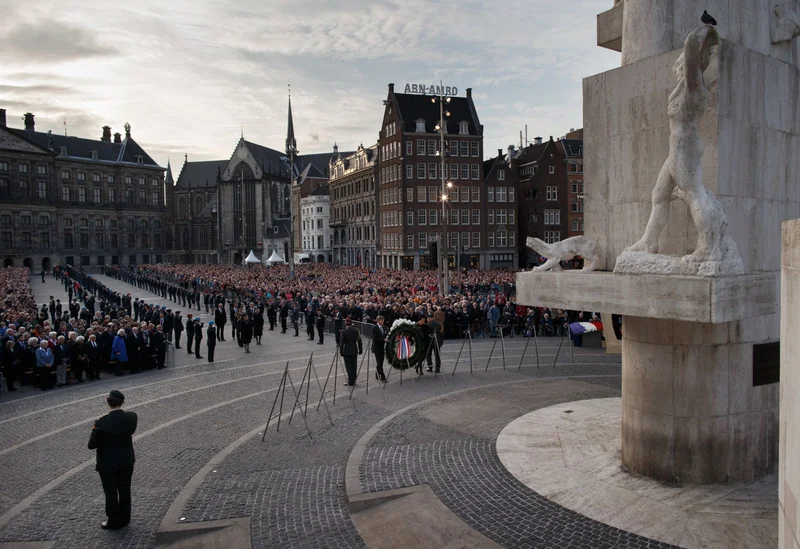
The Netherlands observes a solemn day of remembrance for those who died in wars and peacekeeping missions. The ceremony includes two minutes of silence at 8 PM throughout the country.
The observance honors Dutch military personnel and civilians who lost their lives in conflicts. The day emphasizes the importance of peace and the cost of freedom.
Coal Miners Day India
India recognizes the contributions of coal miners to the nation’s energy sector and economic development. The day honors the dangerous and essential work performed by mining communities.
The observance includes ceremonies at mining sites and recognition of worker safety achievements. Coal Miners Day highlights the importance of mining safety and worker welfare.
Cassinga Day Namibia
Namibia commemorates the victims of the 1978 South African military attack on the Cassinga refugee camp. The day honors those who died in the struggle for Namibian independence.
The observance includes memorial services and educational programs about the liberation struggle. Cassinga Day remains an important symbol of Namibian resistance to apartheid rule.
